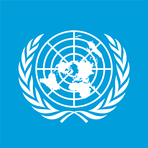Myanmar's Earthquake: A Crisis Within a Crisis
April 6, 2025, 9:53 pm

Location: United States, New York
Employees: 10001+
Founded date: 2002
Total raised: $500M

Location: United States, District of Columbia, Washington
Employees: 10001+
Founded date: 2000
Myanmar is caught in a storm. The recent earthquake has turned a simmering conflict into a boiling crisis. The ground shook on March 28, unleashing devastation. Over 3,400 lives lost. Thousands more injured. Families displaced. The nation, already battered by civil war, now faces a humanitarian disaster.
The military junta, led by Min Aung Hlaing, is in the eye of this storm. Once shunned by the international community, he recently met with leaders from India and Thailand. A rare diplomatic foray amid chaos. The earthquake provided a fleeting opportunity for engagement. But the junta's actions tell a different story.
Aid is being choked. The United Nations reports that the military restricts humanitarian assistance in areas that oppose its rule. It’s a cruel twist. As the nation grapples with the aftermath of the quake, the junta tightens its grip. This is not just a natural disaster; it’s a man-made catastrophe.
The earthquake's toll is staggering. The death count rises daily. The UN aid chief, Tom Fletcher, emphasizes the urgent need for tents and shelter. Survivors are left exposed to the elements. Rains complicate relief efforts. Disease looms large. Cholera is a real threat. The combination of unseasonable rains and extreme heat creates a perfect storm for outbreaks.
Families sleep outside, surrounded by the ruins of their homes. The haunting image of bodies being pulled from rubble is a stark reminder of the tragedy. Fear of aftershocks hangs in the air. Hope is a fragile thing in these moments.
Myanmar's neighbors have stepped in. China, India, and other Southeast Asian nations have sent aid. But the response is fragmented. The United States, once a leading humanitarian donor, has pledged only $9 million. This is a drop in the bucket for a nation in crisis. The dismantling of the U.S. foreign aid program has left a void.
The junta declared a temporary ceasefire, but the reality on the ground tells a different story. Reports of military attacks continue. Bombs dropped in Karenni and Shan states, even after the ceasefire announcement. Civilians caught in the crossfire. The junta's actions reveal a pattern of exploitation. Disasters are used as a smokescreen for ongoing violence.
International leaders call for a political resolution. Indian Prime Minister Narendra Modi advocates for a permanent ceasefire. But the junta’s commitment to peace is questionable. The proposed elections in December are viewed as a sham. Critics argue they are merely a ploy to maintain power.
The humanitarian crisis deepens. Millions are already displaced due to the civil war. The earthquake has exacerbated an already dire situation. Essential services, like healthcare, are crippled. The agrarian economy is in shambles. Food insecurity is rampant.
As the monsoon season approaches, the urgency for aid grows. The UN warns that without immediate action, the situation will worsen. The combination of natural disaster and political strife creates a perfect storm.
The international community watches, but action is slow. Humanitarian corridors are needed. Aid must reach those in need, regardless of political affiliation. The people of Myanmar deserve support. They are caught in a web of conflict and disaster.
The world must not turn a blind eye. The tragedy unfolding in Myanmar is a call to action. Lives are at stake. The earthquake has exposed the fragility of a nation. It has revealed the depths of human suffering.
In the face of adversity, resilience shines through. Communities are coming together. Local organizations are mobilizing. The spirit of solidarity is strong. But without external support, their efforts may not be enough.
The situation is fluid. Each day brings new challenges. The junta's grip on power remains firm. Yet, the cries for help grow louder. The international community must respond. The time for action is now.
Myanmar stands at a crossroads. The earthquake has opened a window for change. Will the world seize this moment? Or will it let another opportunity slip away? The future of Myanmar hangs in the balance. Hope flickers, but it needs fuel to burn bright.
In the end, the people of Myanmar are more than statistics. They are mothers, fathers, children. They are survivors. Their stories deserve to be told. Their struggles must not be forgotten. The world must listen. The world must act.
The military junta, led by Min Aung Hlaing, is in the eye of this storm. Once shunned by the international community, he recently met with leaders from India and Thailand. A rare diplomatic foray amid chaos. The earthquake provided a fleeting opportunity for engagement. But the junta's actions tell a different story.
Aid is being choked. The United Nations reports that the military restricts humanitarian assistance in areas that oppose its rule. It’s a cruel twist. As the nation grapples with the aftermath of the quake, the junta tightens its grip. This is not just a natural disaster; it’s a man-made catastrophe.
The earthquake's toll is staggering. The death count rises daily. The UN aid chief, Tom Fletcher, emphasizes the urgent need for tents and shelter. Survivors are left exposed to the elements. Rains complicate relief efforts. Disease looms large. Cholera is a real threat. The combination of unseasonable rains and extreme heat creates a perfect storm for outbreaks.
Families sleep outside, surrounded by the ruins of their homes. The haunting image of bodies being pulled from rubble is a stark reminder of the tragedy. Fear of aftershocks hangs in the air. Hope is a fragile thing in these moments.
Myanmar's neighbors have stepped in. China, India, and other Southeast Asian nations have sent aid. But the response is fragmented. The United States, once a leading humanitarian donor, has pledged only $9 million. This is a drop in the bucket for a nation in crisis. The dismantling of the U.S. foreign aid program has left a void.
The junta declared a temporary ceasefire, but the reality on the ground tells a different story. Reports of military attacks continue. Bombs dropped in Karenni and Shan states, even after the ceasefire announcement. Civilians caught in the crossfire. The junta's actions reveal a pattern of exploitation. Disasters are used as a smokescreen for ongoing violence.
International leaders call for a political resolution. Indian Prime Minister Narendra Modi advocates for a permanent ceasefire. But the junta’s commitment to peace is questionable. The proposed elections in December are viewed as a sham. Critics argue they are merely a ploy to maintain power.
The humanitarian crisis deepens. Millions are already displaced due to the civil war. The earthquake has exacerbated an already dire situation. Essential services, like healthcare, are crippled. The agrarian economy is in shambles. Food insecurity is rampant.
As the monsoon season approaches, the urgency for aid grows. The UN warns that without immediate action, the situation will worsen. The combination of natural disaster and political strife creates a perfect storm.
The international community watches, but action is slow. Humanitarian corridors are needed. Aid must reach those in need, regardless of political affiliation. The people of Myanmar deserve support. They are caught in a web of conflict and disaster.
The world must not turn a blind eye. The tragedy unfolding in Myanmar is a call to action. Lives are at stake. The earthquake has exposed the fragility of a nation. It has revealed the depths of human suffering.
In the face of adversity, resilience shines through. Communities are coming together. Local organizations are mobilizing. The spirit of solidarity is strong. But without external support, their efforts may not be enough.
The situation is fluid. Each day brings new challenges. The junta's grip on power remains firm. Yet, the cries for help grow louder. The international community must respond. The time for action is now.
Myanmar stands at a crossroads. The earthquake has opened a window for change. Will the world seize this moment? Or will it let another opportunity slip away? The future of Myanmar hangs in the balance. Hope flickers, but it needs fuel to burn bright.
In the end, the people of Myanmar are more than statistics. They are mothers, fathers, children. They are survivors. Their stories deserve to be told. Their struggles must not be forgotten. The world must listen. The world must act.